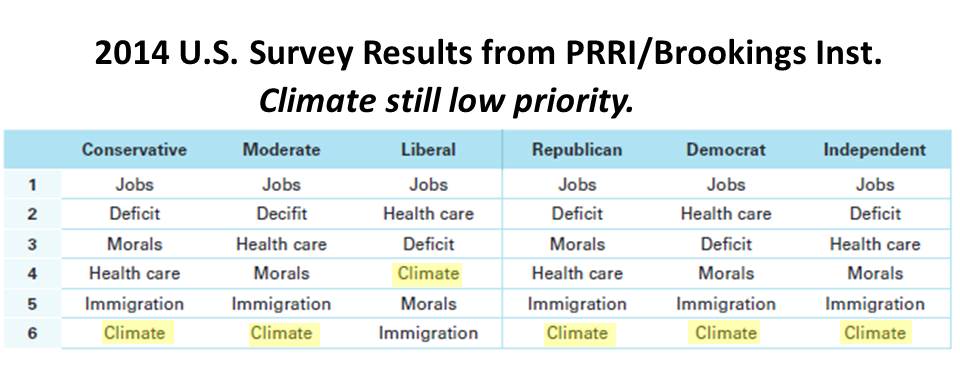Public opinion surveys are notoriously easy to manipulate. Depending on how you ask the survey question, you can get just about any results you want.
A recently publicized Washington Post – ABC News poll, timed to coincide with the recent announcement of the Obama EPA proposed power plant CO2 emissions regulations, found a majority of Americans supported CO2 restrictions on coal-fired power plants. But the way the question was asked minimized the supposed cost, and maximized the supposed benefit, of such restrictions on the American economy.
Quoting from the HuffPo article about the survey results:
“Asked whether Washington should still go forward with limits if they “significantly lowered greenhouse gases but raised your monthly energy expenses by 20 dollars a month,” 63 percent of respondents say yes, including 51 percent of Republicans, 64 percent of independents and 71 percent of Democrats.”
Hell, even *I* would probably support $20 more a month if it “significantly lowered greenhouse gases”, just to be on the safe side. But it’s NOT going to significantly lower greenhouse gases (on a global basis, which is what matters), nor is it going to cost only $20 a month.
The poll question was so poorly worded and misleading, I think the pollsters should be ashamed of themselves.
A more recent survey of American attitudes on immigration and other matters (including how the various news outlets rank for trustworthiness) was just announced yesterday by the Brookings Institution, and buried in it was the following chart that showed how Americans with different political leanings ranked various concerns. As is usually the case, “climate” comes in dead last with all groups except self-described “liberals”:

Clearly, jobs and the deficit — basically, “the economy” — is the main concern that most Americans have. And the proposed EPA regulations will hurt far more people than they would help…especially the poor.
Generally speaking, the public has lost faith in scientists whose profession requires them to sound the alarm over global warming climate change climate disruption. Most Americans understand that forecasts of gloom and doom as predicted by “scientific experts” are not as reliable as predictions of, say, this afternoon’s weather.
In fact they have a history of almost zero reliability.
We can predict the time of sunrise in Podunk, Michigan on July 17, fifty years in advance. But not all scientific disciplines are created equally, climate prediction is still in its infancy, and fortunately the public understands that.

 Home/Blog
Home/Blog



